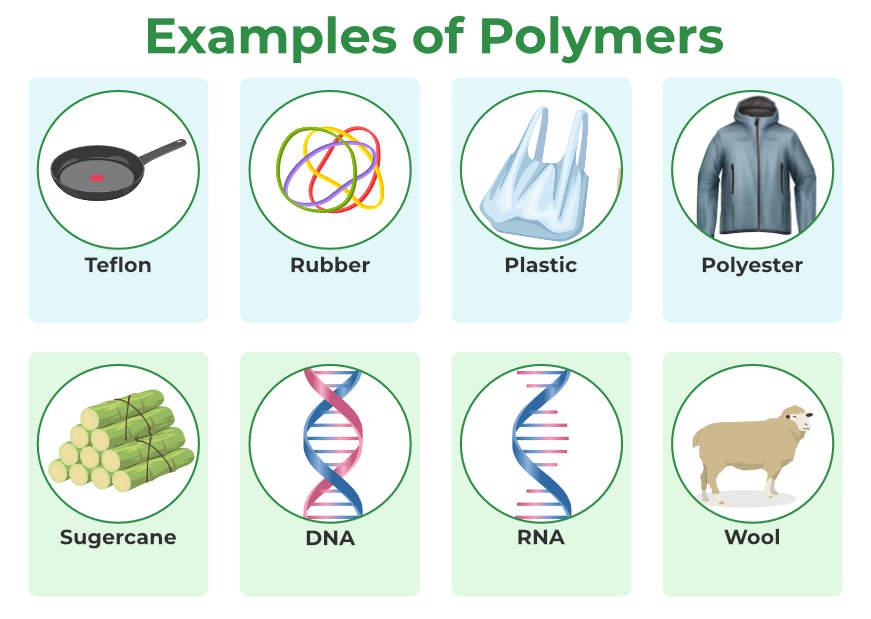Discovering the Varied Applications and Advantages of Polymers in Different Industries
Polymers, with their varied range of properties and functionalities, have ended up being vital in different sectors, each enjoying special take advantage of their application. Polymers. From improving security and performance in the automobile industry to revolutionizing clinical gadgets in the health care industry, polymers play a pivotal role. Moreover, their environmentally friendly nature is altering the landscape of sustainability techniques. As we look into the depths of polymers in electronic devices, we uncover sophisticated innovations, while their architectural integrity transforms the realm of building and framework. The prevalent impact of polymers throughout industries is a testament to their flexibility and adaptability, forming the future of many industries.
Automotive Sector Applications
Polymers play a critical duty in enhancing the performance and longevity of various parts within the automotive industry. One popular usage of polymers in the auto sector is in the production of lightweight elements.

Healthcare Sector Benefits
In numerous health care applications, the benefits of using polymers are widely acknowledged for their diverse range of beneficial residential properties. Polymers play a vital function in the healthcare sector as a result of their versatility, biocompatibility, and cost-effectiveness. Among the primary advantages of polymers in healthcare is their capacity to be tailored to details demands, such as flexibility, durability, and biodegradability, making them excellent for a large range of clinical applications.
Polymer-based products are extensively made use of in clinical devices, such as catheters, implants, prosthetics, and medicine distribution systems, due to their biocompatibility and capability to imitate natural tissues. These products can decrease the threat of allergies or rejections, improving individual security and end results. In addition, polymers are lightweight, making them suitable for wearable clinical gadgets and ensuring patient comfort.
In addition, polymers enable the growth of ingenious therapy methods, such as hydrogels for cells engineering and nanocomposites for targeted medication delivery. Their simplicity of handling and sterilization makes them crucial for maintaining high requirements of health in medical care settings. Generally, the varied benefits of polymers contribute substantially to innovations in clinical technology and patient care.
Ecological Advantages of Polymers

Moreover, polymers can add to energy cost savings because of their light-weight nature. In markets such as transport, lightweight polymer products can help in reducing fuel usage and greenhouse gas exhausts. Additionally, polymers can enable the advancement of energy-efficient products such as insulation products that boost energy conservation in buildings.
Additionally, polymers play a crucial role in minimizing water pollution. For instance, using polymer-based filtration systems can efficiently eliminate pollutants and contaminants from wastewater, safeguarding water sources and ecosystems. Generally, the ecological advantages of polymers make them important properties in advertising sustainability and environmentally friendly practices across various sectors.
Polymers in Electronics and Technology
Considering the raising demand for innovative and lasting services in modern sectors, the combination of advanced polymer modern technologies in the realm of electronic devices and innovation has basics become a critical strategy for driving effectiveness and performance. Polymers have actually transformed the electronic devices market by enabling the production of lighter, more versatile, and durable digital gadgets. From smartphones to clinical devices, polymers play a critical function in boosting product style and functionality.
One substantial advantage of polymers in electronic devices is their insulating residential or commercial properties, which aid safeguard fragile electronic elements from ecological aspects and electrical disturbance. Furthermore, polymers are crucial in the advancement of adaptable screens, wearable modern technology, and printed electronic devices, supplying unlimited opportunities for creating wise and interconnected tools.
Furthermore, making use of polymers in digital product packaging has resulted in improvements in miniaturization and thermal monitoring, enhancing the general efficiency and reliability of electronic systems. As modern technology remains to develop, the versatility and adaptability of polymers will most certainly drive even more advancement in the electronic devices industry, shaping the future of technology.
Role of Polymers in Building and Framework
The assimilation of advanced polymer products in construction and infrastructure projects has actually changed the means structures are developed and developed in modern times. Polymers provide various advantages in the construction industry due to their versatility, sturdiness, and cost-effectiveness. One crucial function of polymers in construction is their use in coverings and sealants, providing defense versus ecological aspects such as moisture, UV radiation, and deterioration. Furthermore, polymers are made use of in the production of light-weight and high-strength composite materials, enhancing the architectural honesty of structures while reducing total weight.
In addition, polymers play an essential function in lasting construction practices by allowing the growth of energy-efficient frameworks. Shielding materials made from polymers help control interior temperature levels, lowering the demand for heating and cooling systems and ultimately reducing energy usage - Polymers.
Verdict
In conclusion, polymers play an essential role in different markets such as vehicle, medical care, ecological, electronic devices, and building. Their functional buildings make them beneficial in developing cutting-edge remedies and items. From boosting gas effectiveness in lorries to boosting clinical tools, polymers supply countless benefits. In addition, their influence on reducing waste and advertising sustainability highlights their relevance in modern applications. The widespread use polymers shows their substantial contribution to advancing technology and boosting quality of life. read more